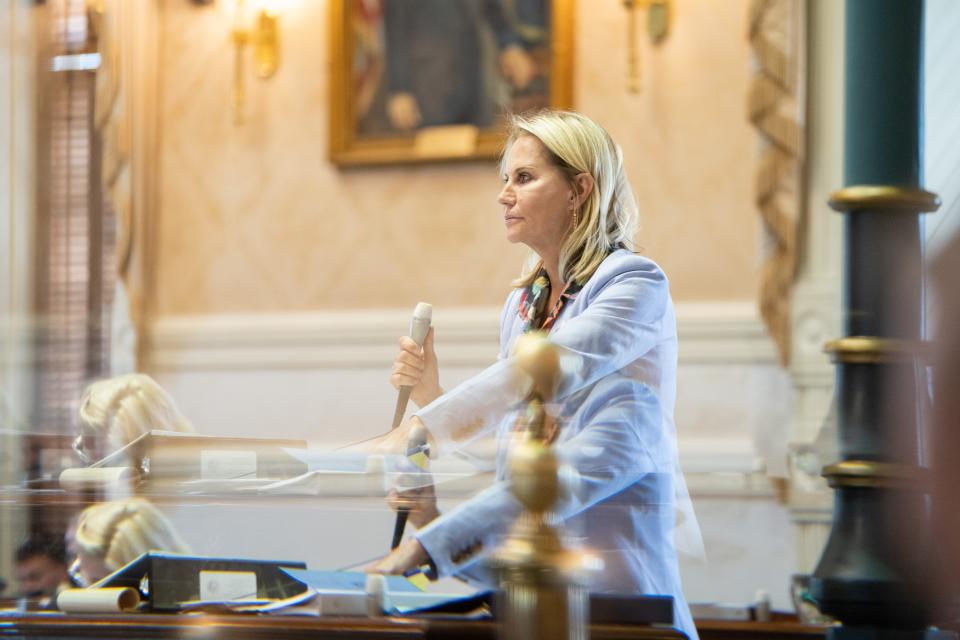South Carolina senators defended abortion and lost their jobs
South Carolina will soon have a notable gender disparity in the state's legislature, after the chamber's only three Republican women defended abortion access and then lost their seats.
State Sens. Penry Gustafson, Sandy Senn and Katrina Shealy went against the rest of their majority party and helped block a near-total abortion ban that excluded exemptions for rape or incest.
Now, none of these women will return after 2024.
Gustafson and Senn each lost their primary races on June 11 to male challengers. Shealy, South Carolina's current longest-serving female senator, then lost her spot in a runoff election June 25 against a man.

The three Republican women were a part of a five-member contingent dubbed the "Sister Senators," along with state Sens. Mia McLeod, an independent, and Margie Bright Matthews, a Democrat. Another Democrat, state Sen. Tameika Isaac Devine, later became the sixth member of the group by winning a special election in January.
With the removal of the GOP women, along with McLeod's decision to not run for reelection, the Palmetto State's upper chamber is looking at having just two women − the Democratic incumbents Matthews and Devine − among its 46 members.
South Carolina would have the lowest representation of women in their upper chamber out of any state in the country. A handful of women will appear on this year's ballot, though each face an uphill battle in districts leaning toward their opposing party.
"Women, somebody else is going to have to stand up," Senn, one of the three Republican women, said in her farewell address June. "Somebody else is going to have to come and make things right."

Abortion has been a charged issue in elections since the Supreme Court overturned Roe v. Wade, the decades-old case establishing a constitutional right to abortion, in 2022. Republicans, from presumptive presidential nominee Donald Trump and down the ballot, have grappled with their approach and messaging.
South Carolina today has a six-week abortion limit, which the three Republican women opposed as well.
"We in the South Carolina Legislature are not God," Shealy said at the time. "We do not know what’s going on in somebody else’s life. We do not have the right to make decisions for someone else."
This article originally appeared on USA TODAY: South Carolina female senators lose seats after fighting abortion ban


